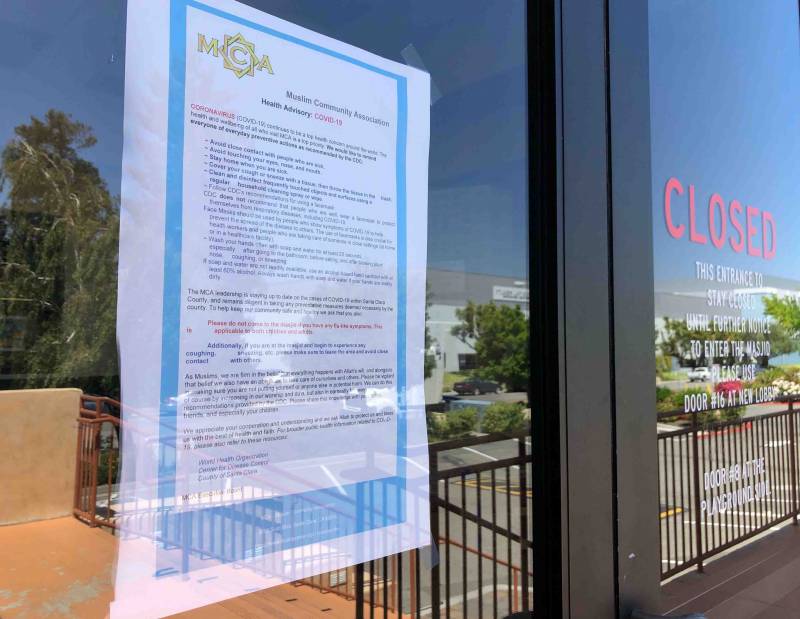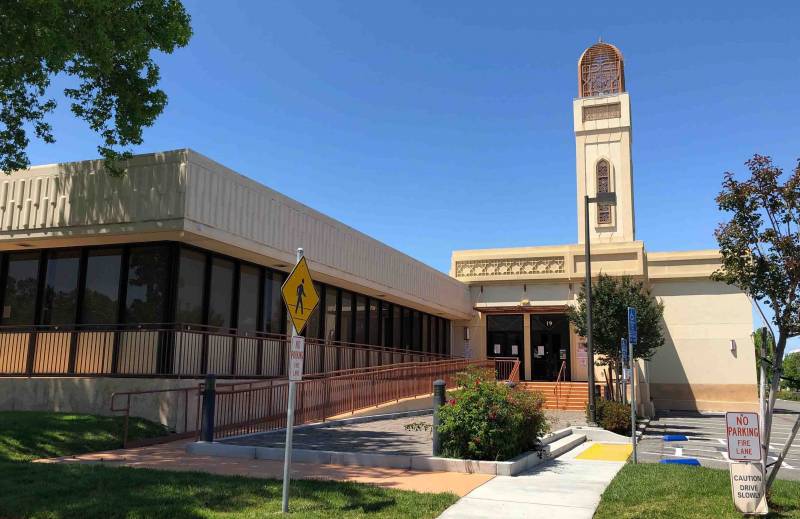Ramadan is coming to a close with a shelter-in-place version of Eid this weekend.
In a typical year, families come to a mosque for evening prayers, where they’re confronted with a host of collection boxes for different charities. Zakat, one of the pillars of the Muslim faith, requires people give 2.5% of their savings to charity, if they are able.
During Ramadan, according to belief, extra donations lead to extra blessings, and mosques typically raise most of their annual budget during this time. This year, it’s a different story. Bay Area mosques report fundraising has hit an all-time low.
Junaid Shaikh is a board member of Muslim Community Association, a “mega-mosque” in Santa Clara with more than 2,000 worshippers. “It’s a month of fasting, but it’s also a month of giving,” Shaikh said. “It’s like about eight to 10 times more than regular months. That’s how much Muslims give.”
Because of the pandemic, mosques are holding online services, and they’re fundraising digitally, too. However, results have been disappointing for many mosques.


